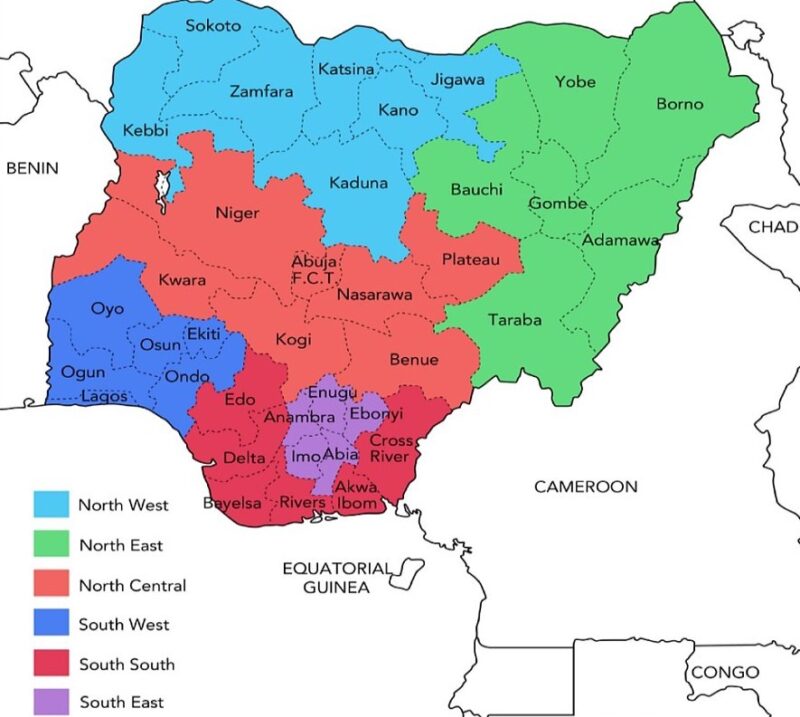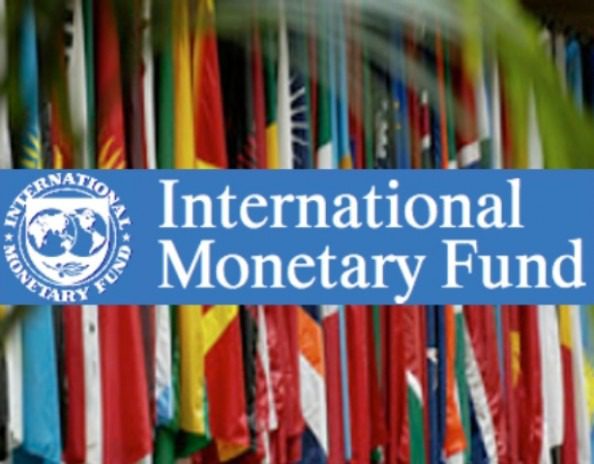National Issues
Between Biafra and Restructuring Nigeria -By Kingsley Moghalu


It is the temptation of war to punish, the task of policy to construct. Power may sit in judgment, but statesmen must look to the future. – Henry Kissinger, former United States Secretary of State
Nation-building is hard, but it need not be as difficult as we make it in Nigeria. Nation-building is also intentional. It doesn’t happen by accident. The real test is in the leadership and the actions that create a real spirit of nationhood, and the willingness of every stakeholder to build a united, stable and cohesive nation. Fifty years after Biafra, we are confronted with the imperative of defining a future for Nigeria that escapes our country’s past.
The Federal Government of Nigeria and all our countrymen and women should take the increasingly potent agitations by various groups for the Igbos of the South-East zone to break away from Nigeria with the seriousness the matter deserves. The Nigerian state must engage the agitations and address, and redress, their root causes that lie in decades of self-evident marginalisation that the Igbo have experienced in post-civil war Nigeria. These hurt feelings and the suspicions they breed have not just hampered the progress of nation-building in Nigeria. They are creating the foundations of certain state failure if further mishandled, as the bonds that hold our country together in an imperfect union continue to fray.
Why is the rise of the neo-Biafra movement, comprising mainly men and women who were babies or even unborn during the civil war of 1967 to 1970 a fundamental strategic shift in the trajectory of our national history? Minds unfamiliar with the larger sweep of world history will scoff at the agitations and see the relative youth of the neo-Biafra campaigners as evidence of their naivete. This perspective misses some fine points. The first is that the historical evidence is that the geographical structures of boundaries of nations are not cast in stone. The socialist Federal Republic of Yugoslavia, a construct of the Cold War, broke up in the Balkan conflicts in the early and mid-1990s into separate and sovereign countries. As a United Nations official, I played a role in the political negotiations between the Serbs and the Croats and in nation-building efforts in Croatia in the mid-1990s. Czechoslavakia broke up and become two nations, Czech Republic and Slovakia. Closer home, a plebiscite administered in 1961 at the behest of the United Nations to determine the wishes of inhabitants of certain parts of Cameroon resulted in Northern Cameroon becoming a part of Northern Nigeria while Southern Cameroon joined the Republic of Cameroon.
Second, international law provides some legal basis for the concept of self-determination of peoples. Third, and perhaps most importantly, the agitations for Biafra were a fringe and marginal movement, and likely would have remained so, were it not for the enhanced perception in the South-East that it has been comprehensively and strategically marginalised more than ever before in the past two years. This shift in sentiment has important implications. For one, if a referendum were held in the region today on the subject of remaining or leaving the Nigerian federation, a majority will, in all likelihood, vote in favour of leaving Nigeria. The dramatic swing in pro-Biafra sentiment from marginal to mainstream in the region underscores the mismanagement of our nation-building challenge.
The more important implication from a longer-term perspective is that struggles for freedom from oppression or domination tend to have an inevitable historical logic that almost always ends in success. It does not matter how long it takes, nor is this historical truth affected by the reluctance of dominant and powerful groups to recognise it. The biblical Jews in slavery in Egypt for 430 years led to freedom by Moses and Joshua, the struggle for decolonisation by numerous African and other colonised nations, the ultimate end of Apartheid in South Africa, the end of slavery and the civil rights movement in the United States in the face of white racism and privilege that thought it would last forever, are just a few examples.
The Biafra campaigners believe that the long arc of history is on their side. Ridiculing them by references to their relative youth misses the point. Their resolve is steely and their fervour is driven precisely by their youth. The danger now, which must be prevented, is that some in these groups may be increasingly radicalised and tempted to take up arms against their fatherland. This would be an abject failure to learn the lessons of the original Biafra five decades ago. The groups have also become increasingly intolerant of alternative approaches which argue that the Nigeria project is not necessarily beyond redemption, and can be remedied by a negotiated outcome that redresses and rebalances our failing federation by ensuring equity for all its citizens. Moreover, the use of vitriolic and dehumanising language in argumentation, whether for or against a new Biafra, is wrong and counterproductive.
Which brings us to the question: Where do we go from here? For reasons that include the resurgence of agitation for Biafra but go well beyond it (because the interests of other groups in Nigeria also matter to the extent those interests are legitimate ones) there really is no alternative to the constitutional restructuring of the Nigerian federation. Specific to the Biafra question, however, it is the only alternative outcome with any chance of addressing, slowing or reversing the momentum of the campaign for Biafra 2.0.
Several rational arguments make a strong case for taking the bull by the horns and re-engineering Nigeria. All Nigerians should reflect and act on these arguments in our collective self-interest. Our country is not working. Many groups, not just the Igbo of the South-East, feel marginalised or have felt marginalised at different stages of our national history. We can’t achieve greatness as a country without national unity, stability and cohesion. Many nations have achieved nationhood and prosperity in diversity, which is the default composition of most nations on earth. Only a few nations, like Japan and Korea, are truly homogenous.
All that is required is that we bury the winner-takes-all mentality driven by ethnic and religious irredentism and design a structure that works for us all. This is doable with real leadership, political will and commitment. Restructuring, if well done, will have a proactive effect of stabilising Nigeria so we can get on with real development. That’s a far better scenario than the episodic, reactive fire-brigade responses to the Yoruba after the June 12, 1993 presidential election won by M.K.O. Abiola was cancelled, the Niger Delta militancy over crude oil “resource control”, the Boko Haram rebellion, and today’s neo-Biafra uprising. In other words, 57 years after independence, we remain stuck at the level of fundamentals. We can’t take off unless we sort them out.
To work well, a restructuring exercise must make informed choices. We must choose between maintaining a unitary state (which is Nigeria today despite officially being a federation) in which the central government is very powerful, with devolution of powers as is increasingly the case in the UK, a true federation in which regions could be the federating units and the central government and the federating units are roughly equal in status as in the United States, Canada, Germany, India, Australia and Brazil, or a confederation in which the federating units are superior to the central government, with Switzerland as a prime example.
The best arrangement for Nigeria is neither the “unitary federalism” the military leaders imposed on us, nor a confederation, but a real federation with a finely calibrated balance of powers and responsibilities between the central and federating units. In this scenario, the federating units can look after themselves more effectively without the “feeding bottle” of the central government. The centre becomes less powerful, but not weak, because it will retain core sovereign responsibilities such as the armed forces and security services, citizenship and immigration, foreign affairs, and the central bank. The federating units in Nigeria should be the six geopolitical zones and not the present structure of states.
Restructuring is also essential because it will help our democracy achieve better governance. The periodic rituals of elections have not necessarily improved governance. There are two ways this will happen. One, restructuring will bring greater accountability and transparency to governance because power and responsibility will devolve closer to the people. This will help evolve a better culture and quality of leadership, and will also foster competitive development between the regions. Nigeria today is far more integrated than it was in the 1960s, and the six zones structure will prevent the extreme ethnic chauvinism that afflicted the First Republic. Restructuring ought as well to accomplish a reduction in the costs of governance at both the center and the regions.
Restructuring also is the best path to economic transformation. A six-zone federal structure will offer economies of scale in terms of the ability of a regional government to mobilise adequate tax revenues and utilise these resources for development. It will do the same in the areas of manufacturing, as well as intra-regional, inter-regional and international trade. A restructuring based on the current 36-state structure will not work. That most states in Nigeria today are fiscally unviable has been demonstrated beyond any doubt. Paying salaries to state civil servants as and when due, or in arrears, has become a governance “achievement” in our country! With the reign of crude oil regressing into historical memory, the future is bleak and unsustainable, under our current fiscal structure, without a fat federal government oil purse to be distributed to dependent states.
I believe that restructuring is necessary and inevitable. Some stakeholders may dismiss the prospect because of a fear of the loss of perceived political advantage. But no one has anything to fear in an intelligently restructured Nigeria. There can no peace without justice. The question is not whether Nigeria will be redesigned but when, and who will lead the process of achieving that outcome in which every Nigerian, regardless of tribe, tongue and creed, could be a winner.
www.kingsleycmoghalu.com or kingsleymoghalu@hotmail.com


















